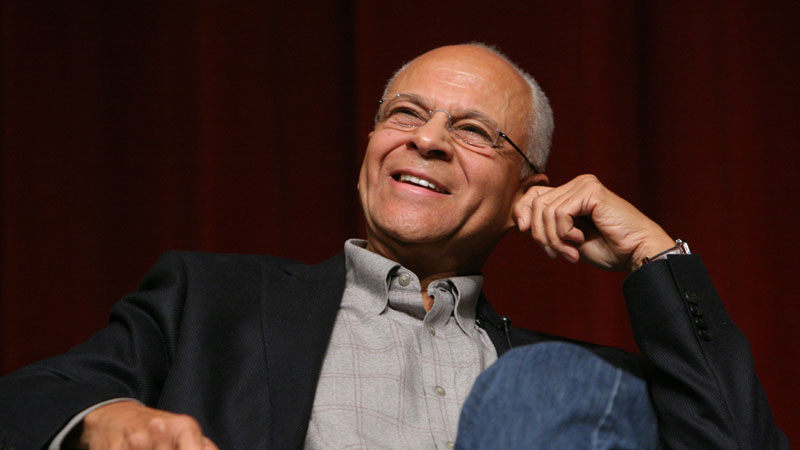On February 23, the African American Steering Committee (AASC) presented a special evening in honor of Director Michael Schultz. The evening was part of the DGA’s 75th Anniversary celebrations that cast the spotlight on directors and events that ‘changed the game’ for all that followed.
As one of the first African American directors hired by the major studios, Schultz opened doors for directors of color. Starting in the 1970s with such features as Cooley High, Car Wash, Greased Lightning, Which Way is Up? and Sgt. Peppers Lonely Hearts Club Band, his career spanned more than four decades, during which he also directed movies for television, children’s programming and episodes of many of television’s most popular and iconic series including The Rockford Files, L.A. Law, Ally McBeal, The Practice and Picket Fences.
In front of a capacity crowd in DGA Theater One in Los Angeles, AASC Co-Chair Oz Scott welcomed the audience and drew laughs as he joked about Schultz’s age by claiming to have watched his work as a small child. He then turned the dais over to DGA President Taylor Hackford. “Tonight we pay tribute to another important trailblazer,” said Hackford. “Michael has done as much to open doors to directors of color as anyone in this industry. Tonight it is our privilege to honor him.”
AASC Co-Chair Van Hayden introduced a retrospective clip package of Schultz’s work compiled and edited by AASC Activities & Events Chair Abdul Malik Abbott. The clips displayed the depth of a career that stretched from award-winning Broadway productions like “Does A Tiger Wear A Necktie?” in 1969 through his latest feature film Woman Thou Art Loosed in 2004.
AASC Co-Chair Carl Weathers then introduced a veritable parade of special guest speakers, many of whom had just been featured in clips such as Lawrence Hilton-Jacobs, Garrett Morris, Robert Townsend and Glynn Turman (Cooley High); Bill Cobbs (Greased Lightning); George Segal (Carbon Copy); Richard Benjamin (Scavenger Hunt); Franklyn Ajaye, Bill Duke and Henry Kingi (Car Wash); Anna Maria Horsford (Benny’s Place); Margaret Avery (Which Way is Up?); Kimberly Elise and Clifton Powell (Woman Thou Art Loosed). Also stepping to the podium were Directors Stan Lathan, Ernest Dickerson and Tim Story. Each speaker had their own amusing and/or moving anecdote about working with Schultz on a wide variety of classic productions, or being befriended by him.
After the honorariums, DGA First Vice President Paris Barclay introduced the evening’s honoree. After thanking the AASC for the tribute, Schultz engaged in a brief conversation moderated by 1st AD Dwight Williams who had worked with him on the films Greased Lightning and Krush Groove.
In illustration to his status as a game-changer, Schultz told a story of how he worked to open doors to more people of color after his experience shooting The Last Dragon in New York in 1985. “I was shocked to see that there was only one black crew person out of a crew of about 120. About two weeks into the shoot the one black crew guy got fired. My hands were so full that I couldn’t fight that fight then. And the refrain kept coming back, ‘we can’t find any qualified people.’ So I said, ‘I’m coming back to New York and I’m going to make a movie with an all-black crew just to prove that’s bull.’ I came back with Krush Groove and wound up with an 80% black crew. That became the bed that Spike Lee used to launch productions and he carried it far beyond me with workshops, internship programs, and really developed a crew base in New York.”
Asked to give the benefit of his experience to fledgling filmmakers, Schultz recommended they immerse themselves in literature and learn the basics of working with actors.
“I see film as a real opportunity to examine the human condition” said Schultz. “No matter where the technology goes in the future, the basics don’t change. Storytelling is a primitive tribal function. The elders sat around the fires and told these stories as a way to pass on the ‘dos’ and the ‘don’ts.’ That will never change.”


